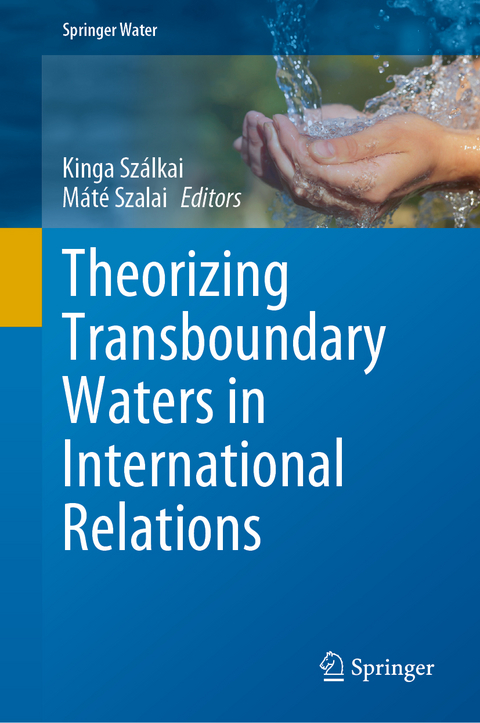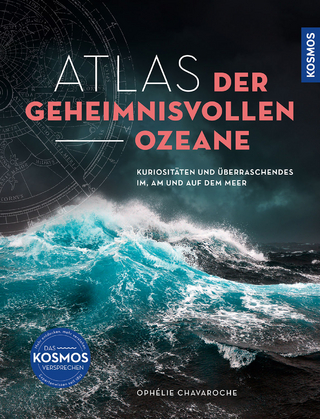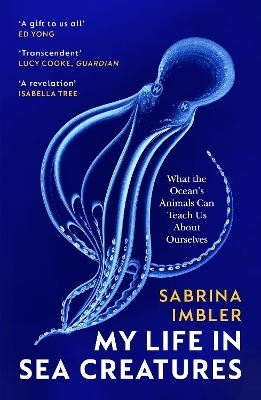
Theorizing Transboundary Waters in International Relations
Springer International Publishing (Verlag)
978-3-031-43375-7 (ISBN)
The volume starts out from a literature review on the theorization of transboundary waters in International Relations, which prepares the ground for the demonstration of the latest approaches of scholars currently working on this field. The discussion of their findings is divided into four main sections. The first section deals with reflections and critiques on the grand theories of International Relations, proposing new and more nuanced frameworks for understanding and managing transboundary water relations by going beyond the traditional assumptions. The second section focuses on the catalysts and barriers of cooperation, applying theoretical frameworks which reveal the consequences of the dynamics in power relations and institutional frameworks. The third section investigates into the perspectives at the intersections of theory and practice related to the most practical field within the scope of the volume: water diplomacy. The fourth section introduces new perspectives to provide specific entry points for understanding and managing water conflict and cooperation.
Overall, the work intends to demonstrate that the theorization of transboundary waters can significantly contribute to the deeper understanding and the more efficient management of water conflicts and cooperation from several aspects.
The authors come from diverse backgrounds, and their individual careers are often related to the intersections of theory and practice in the field of transboundary water management. Their expertise covers water issues from all around the globe, which is reflected in the range of the analyzed case studies. The diversity of the experts involved, their backgrounds, their perspectives, the applied theories, and the analyzed cases was an important priority for the editors.
Kinga Szálka, PhD is an Associate Professor with a demonstrated history of working in the higher education industry. Skilled in International Relations Theory, Security Studies, and the Post-Soviet Region. Strong education professional with a PhD focused on Water Security in Central Asia from Corvinus University of Budapest.
Máté Szalai, Ph.D. received his Bachelor and Master degree in the International Studies program at Corvinus University of Budapest, where he is currently an senior lecturer. He started to work at the predecessor of the Institute of Foreign Affairs and Trade as a project coordinator in 2014, then as a researcher from 2015 and as the coordinator of the Middle Eastern and North African research program from 2017. Besides the general political, economic and social developments of the MENA region, his primary fields of research include the Persian Gulf and the Syrian and Iraqi civil wars. He is the co-author of the book entitled "The Caliphate of the Islamic State" published in 2016. He obtained his PhD in 2019 in the International Relations Doctoral School at Corvinus University of Budapest. Beyond MENA affairs, he also researches the foreign policy of small states as well as their theoretical and practical possibilities and challenges.
Part I. Revisiting 'Grand Theories.-1. Introduction: Mixing Water and International Relations Theory.- 2. The Theories of International Relations and The Hy-dropolitical Cycle: The Hydro-trap and the Anarchic Nature of Water Conflict.- 3.Exploring the Sub-state-Supra-state Nexus in Transboundary Water Politics.- 4.Trust in Transboundary Water Cooperation: A Social Construc-tivist Approach.- Part II. Conflict and Cooperation over Transboundary Waters.- 5.Hydro-Hegemony in East and Southeast Asia: The Case of the Lancang/Mekong River.- 6.Reframing Trans-boundary Water Security.- 7.Water for Peace Revisited: Reconsidering Securitization's Role in Water Cooperation.- Part III. Transboundary Water Diplomacy.- 8.The Evolution of Water Diplomacy Frameworks: The Eu-phrates-Tigris Basin as a Case Study.- 9.Is Salmon Surprise on the Table? Indigenous Rights and Multi-Stakeholder Diplomacy in the Renegotiation of the Columbia River Treaty.- 10.The Role of Data Sharing in Transboundary Waterways: The Case of the Helmand River Basin.- Part IV. New Perspectives on Transboundary Waters.- 11.Discourses and Hydropolitics: Stock-Taking and Future Directions.-12.The Upstream-Downstream Structural Disparity and Transbound-ary Challenges of Public Health.- 13.Transboundary Water Management Among Small Island Develop-ing States: Dynamics of Conflict and Cooperation.- 14.Conclusion: The Role of IR Theories in Trans-boundary Water Politics.
| Erscheinungsdatum | 04.01.2024 |
|---|---|
| Reihe/Serie | Springer Water |
| Zusatzinfo | X, 256 p. 14 illus., 8 illus. in color. |
| Verlagsort | Cham |
| Sprache | englisch |
| Maße | 155 x 235 mm |
| Gewicht | 525 g |
| Themenwelt | Naturwissenschaften ► Geowissenschaften ► Hydrologie / Ozeanografie |
| Schlagworte | applied theory • Hydropolitics • Political Geography • theorization of transboundary waters • Water conflict • Water Diplomacy • Water Governance |
| ISBN-10 | 3-031-43375-0 / 3031433750 |
| ISBN-13 | 978-3-031-43375-7 / 9783031433757 |
| Zustand | Neuware |
| Haben Sie eine Frage zum Produkt? |
aus dem Bereich


